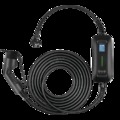Basic Auto Repair Advice Anyone Can Use
Basic Auto Repair Advice Anyone Can Use
Have you ever wondered whether you could save some money doing the car repairs yourself? Have you wished you could select a better auto repair shop or be able to better diagnose the problem with your vehicle? Take the time now to keep reading about some great tips for making the right decisions when it comes to your auto repairs.
Save fuel by driving as if you have a glass of water sitting on your dashboard. This practice helps you avoid jack rabbit starts and quick stops. Each time you accelerate quickly, the engine of your car uses more fuel than it would if you were to accelerate at a gradual increase in speed.
Check the tread on your tires regularly to make sure they are safe. Tires that have less than one quarter of an inch of tread probably need to be replaced. Also be aware of any bulges or cuts on the surface of your tires as this may indicate a weak area that could blow out and cause an accident while you are driving.
Be sure to read your owner's manual to find out what kinds of fluids (oil, brake fluid, transmission fluid, steering fluid) your car needs and to learn how to check and top these off yourself. Keep a few bottles of each fluid in the trunk of your car in case of emergencies.
Talk with your technician to determine if they have worked on your car before. If they have before, then they are likely going to be able to also fix your car easily enough.
Always ask lots of questions when you take your car to get repaired. Don't let the mechanic intimidate you. Ask why something needs to be fixed or how it will be done. If the mechanic tries to brush you off, doesn't look at you, or refuses to answer your questions, consider taking your car to someone else.
Do an online search of reviews about your local automotive repair shop. This will tell you everything you need to know about the shop. This can play a big part in the shop you eventually choose to do your car repair work.
See if you can predetermine your vehicle's issue prior to attending at the mechanics. You can save a ton of cash via diagnosing the issue yourself, and you could prevent fraud. Experience shows that mechanics sometimes falsely claim a problem exists and do an unnecessary repair, to increase their earnings.
If you need new tires, do not get used ones from a garage or a junk yard. Used tires are not a good choice since they might be worn thin or have already been patched. Brand new tires are expensive but they are a good investment and will help you remain safe.
Learn how to perform basic maintenance on your vehicle. It is very easy to do a tune up or change your oil so there really is no reason to bring your car to an auto repair shop to have these things done. Instead, just watch tutorials online to learn what you need to do it on your own.
Stick with Original Equipment Manufacturer (OEM) components. If your car needs parts, choose OEM parts over generic ones. For optimum performance, you should have the OEM parts that are up to the manufacturer's standards. While generic parts are cheaper, they're generally a lower quality than the original ones. This means that you may pay more later for replacements.
D not fall for the "free oil change" trick. This is just a way for someone to convince you that unnecessary things need to be done to your vehicle. Most of the time, low-quality oil is used and it is not good for your car. Stick with using the type of oil the manufacturer recommends.
Without knowing where your car problems lie, repairing your car is impossible. Therefore, you must be able to recognize problems when they arise. For example, if your car belt has cracks in the perpendicular edge, or pieces fall out, you need to replace it immediately. Failing to recognize problems on time can lead to permanent damage to your car; therefore, recognize and resolve these problems as soon as you can.
If you are taking your car to the repair shop for service, be sure you know how they charge for the work being done. Many shops charge a flat rate for most jobs, but others charge based on the amount of time it takes to complete a repair. While both methods can be quite legitimate, it is useful to know which approach your shop is using to help you anticipate final costs.
After paying to replace old parts, make sure the mechanic gives you the old ones that were removed. If he won't, he may not have replaced them in the first place. If this happens, you need to challenge the mechanic and look for someone else in the future.
Great auto-repair and excellent driving can't always save the day, that's why awesome auto insurance is a must. Spend the time to find a reputable dealer with enough coverage to repair any mishaps. Being a great driver and staying in your lane isn't always going to keep the car safe; accidents can happen.
When it comes to car repairs, do your homework. You should avoid taking your car to the mechanic every time you have a problem, but the only way to do that is to understand how your vehicle works. You will save money if can handle flat tires and oil changes on your own.
When you are cleaning the inside of your car, take extra care to wipe the sensitive gauges free of debris. If you apply too much pressure while wiping the gauges, you can scratch the plastic exteriors covering them. Once too many scratches cover the surface, you may be unable to clearly read them while driving.
It is time to get focused on auto repair so that you know what to do when the time arrives. You want to be able to make the right decision, whether you are taking your vehicle to a shop or trying to fix it yourself. Remember all the advice that has been given to you.



